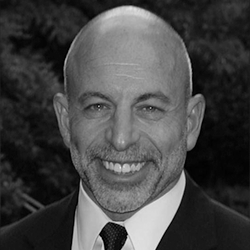
James Giordano, PhD, MPhil
Dr. James Giordano is Chief of the Neuroethics Studies Program, Scholar-in-Residence, leads the Sub-Program in Military Medical Ethics, and Co-director of the O’Neill-Pellegrino Program in Brain Science and Global Health Law and Policy in the Pellegrino Center for Clinical Bioethics; and is Professor in the Departments of Neurology and Biochemistry at Georgetown University Medical Center, Washington, DC, USA. He is also Distinguished Visiting Professor of Brain Science, Health Promotions and Ethics at the Coburg University of Applied Sciences, Coburg, Germany, and was formerly 2011-2012 JW Fulbright Foundation Visiting Professor of Neurosciences and Neuroethics at the Ludwig-Maximilians University, Munich, Germany.
Prof. Giordano currently serves as Chair of the Neuroethics Program of the IEEE Brain Project, and an appointed member of the Neuroethics, Legal and Social Issues (NELSI) Advisory Panel of the Defense Advanced Research Projects’ Agency (DARPA). He has previously served as Research Fellow and Task Leader of the EU Human Brain Project Sub-Project on Dual-Use Brain Science; an appointed member of United States Department of Health and Human Services Secretary’s Advisory Council on Human Research Protections (SACHRP); and as Senior Science Advisory Fellow of the Strategic Multilayer Assessment Branch of the Joint Staff of the Pentagon.
The author of over 290 publications in neuroscience and neuroethics, 7 books, and 15 government whitepapers on neurotechnology, ethics and biosecurity, he is an Editor-in-Chief of the international journal Philosophy, Ethics and Humanities in Medicine; Associate Editor of the Cambridge Quarterly of Health Care Ethics; and Contributing Editor of Frontiers in Human Neuroscience.
His ongoing research addresses the neurobiological bases of neuropsychiatric spectrum disorders; and neuroethical issues arising in and from the development, use and misuse of neuroscientific techniques and neurotechnologies in medicine, public life, global health, and military applications.
In recognition of his work, he was elected to membership in the European Academy of Science and Arts; named an Overseas Fellow of the Royal Society of Medicine (UK); received City University of New York’s Outstanding Alumnus Award; Coburg University’s Gold Medal for Distinguished Achievement, and was awarded Germany’s Klaus Reichert Prize in Medicine and Philosophy.



